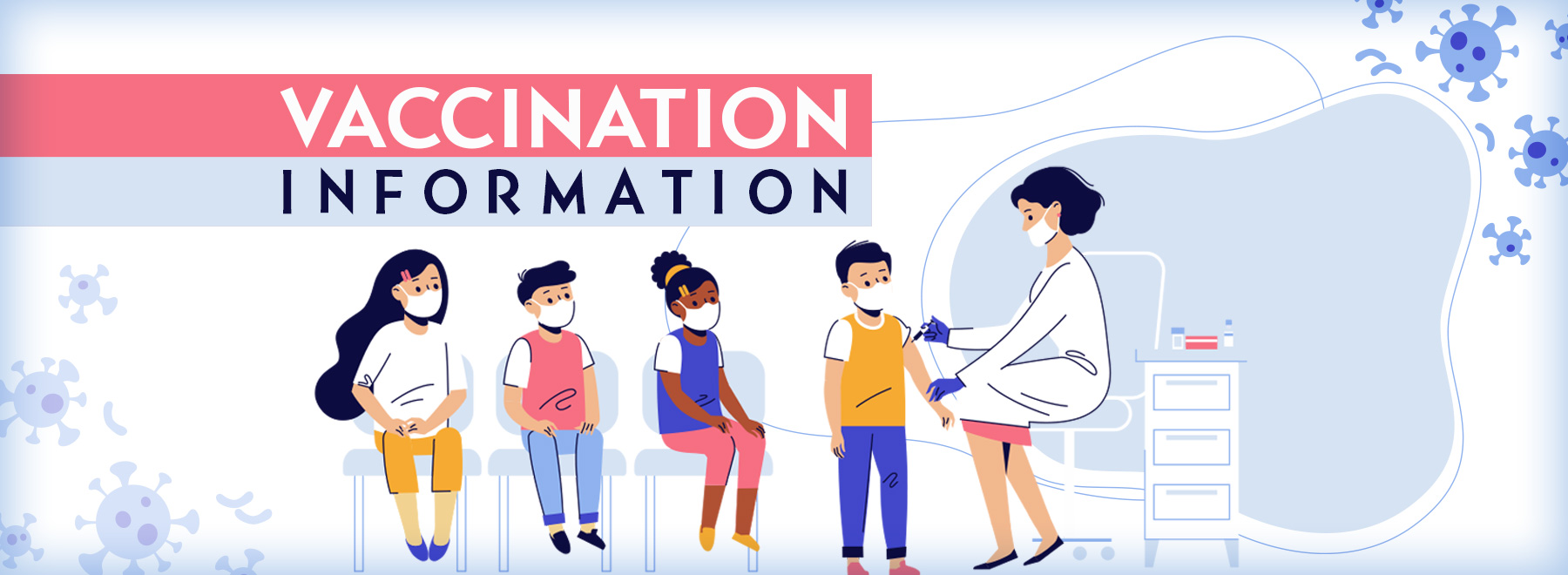What parents should know about their children's immunizations
With school back in session, it’s time to make sure children are up-to-date on immunizations.
To enroll in Mississippi schools, students must receive vaccines that protect against polio and pertussis, measles and mumps, and other infectious diseases. For students entering seventh grade, Mississippi also requires a Tdap (tetanus, diphtheria and pertussis) booster. However, physicians recommend that these adolescents also receive vaccines against human papillomavirus, meningococcal disease, influenza, and this year, COVID-19.

“These vaccines are all recommended for the American Academy of Pediatrics and the Pediatric Infectious Diseases Society,” said Dr. April Palmer, professor of pediatrics at the University of Mississippi Medical Center.
Director of her department’s Division of Infectious Diseases, Palmer said HPV vaccines seem to be among the “most controversial” for parents. Because this virus spreads through intimate skin-to-skin contact, Palmer said some parents hesitate on vaccinating their children because they worry it might encourage sexual activity.
Multiple studies suggest this isn’t the case.
“It’s really important to immunize people long before the start of sexual activity,” Palmer said.
According to the Centers for Disease Control and Prevention, the ideal timing for HPV vaccination is through two doses given when children are 11 or 12 years old, but the vaccine is approved and effective for anyone ages 9 to 45.
About 80 million Americans have HPV, but most have few-to-no side effects and clear the virus on their own. However, it causes about 45,000 cancer cases each year.
The HPV vaccine Gardasil, which the U.S. Food and Drug Administration approved in 2006, underwent years of clinical trials and has been given to millions of people. It has an exceptionally low risk of serious side effects while being effective at preventing HPV-related cancers.
“When I talk to patients about the HPV vaccine, I focus on cancer prevention,” Palmer said. She said cervical and oropharyngeal (throat) cancers are the most common HPV-associated cancers, but the virus can also cause anal and other genital cancers.
“We have only two vaccines that can prevent certain cancers: the hepatitis B immunization (that prevents liver cancers), which we give to infants, and the HPV vaccine, which we give to adolescents,” Palmer said.

Dr. Rajesh Talluri, assistant professor of data science at UMMC, co-authored a June 28 research letter in JAMA Pediatrics that evaluated trends in HPV vaccine refusal among the parents and guardians of teenagers. The study found that concerns about adverse events and safety increased between 2008 and 2019.
In that first year, only five percent of guardians named it their main reason for refusing to vaccinate. That value stayed consistent until about 2015, when it began to climb. By 2019, more than 25 percent of guardians indicated safety was their primary reason for refusal.
“We found that every other reason for vaccine refusal was trending down, such as concerns about cost, lack of knowledge and lack of awareness of this vaccine,” Talluri said. “Concerns about safety were the only reason to rise during the survey period.”
A biostatistician who studies cancer epidemiology, Talluri said this trend could derail cancer prevention efforts. He and his colleagues think misinformation on social media and from well-known people contribute to the trend.
Palmer said anti-vaccine movements have been around about as long as vaccines themselves, but she and her colleagues have noticed upticks in recent years.
“One study showed that when people receive most of their vaccine information from the Internet, they are more distrustful of the information they receive from their primary care provider,” Palmer said.
Unfortunately, other childhood vaccines aren’t immune to misinformation campaigns, either. UMMC recently published a Frequently Asked Questions about COVID-19 vaccines, as well as a version for adolescents.
Currently, children age 12 or older can receive the Pfizer-developed COVID-19 vaccine. The company expects the FDA to authorize the vaccine for children ages 5-11 by the end of 2021, and for all ages in 2022.
Palmer recommends parents and doctors have frank, open conversations about vaccines, and that doctors ask their patients if they have questions – and be ready to answer them.
“Physicians should be very transparent, not hold back information from patients and talk about the potential side effects,” Palmer said. To parents, she said, “as children come in for sports or back-to-school physicals, your personal physician should be your source of information.
“It’s OK to read information on your own, but a one-on-one conversation with a provider you trust is best.”
The above article appears in CONSULT, UMMC’s monthly e-newsletter sharing news about cutting-edge clinical and health science education advances and innovative biomedical research at the Medical Center and giving you tips and suggestions on how you and the people you love can live a healthier life. Click here and enter your email address to receive CONSULT free of charge. You may cancel at any time.



